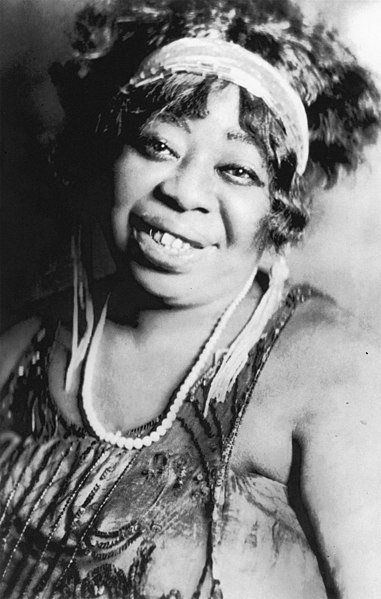William Christopher Handy was an American composer and musician who referred to himself as the Father of the Blues. He was one of the most influential songwriters in the United States. One of many musicians who played the distinctively American blues music, Handy did not create the blues genre but was the one of the first to publish music in the blues form, thereby taking the blues from a regional music style with a limited audience to a new level of popularity.
Handy in July 1941, photographed by Carl Van Vechten
Handy's birthplace in Florence, Alabama
Handy, ca. 1900, director of the Alabama Agriculture & Mechanical College Band
"The Memphis Blues" sheet music cover, 1913
Blues is a music genre and musical form that originated amongst African-Americans in the Deep South of the United States around the 1860s. Blues incorporated spirituals, work songs, field hollers, shouts, chants, and rhymed simple narrative ballads from the African-American culture. The blues form is ubiquitous in jazz, rhythm and blues, and rock and roll, and is characterized by the call-and-response pattern, the blues scale, and specific chord progressions, of which the twelve-bar blues is the most common. Blue notes, usually thirds, fifths or sevenths flattened in pitch, are also an essential part of the sound. Blues shuffles or walking bass reinforce the trance-like rhythm and form a repetitive effect known as the groove.
American blues musician Mississippi Fred McDowell in 1960
American blues singer Ma Rainey (1886–1939), the "Mother of the Blues"
Musicologist John Lomax (left) shaking hands with musician "Uncle" Rich Brown in Sumterville, Alabama
Sheet music from "Saint Louis Blues" (1914)








